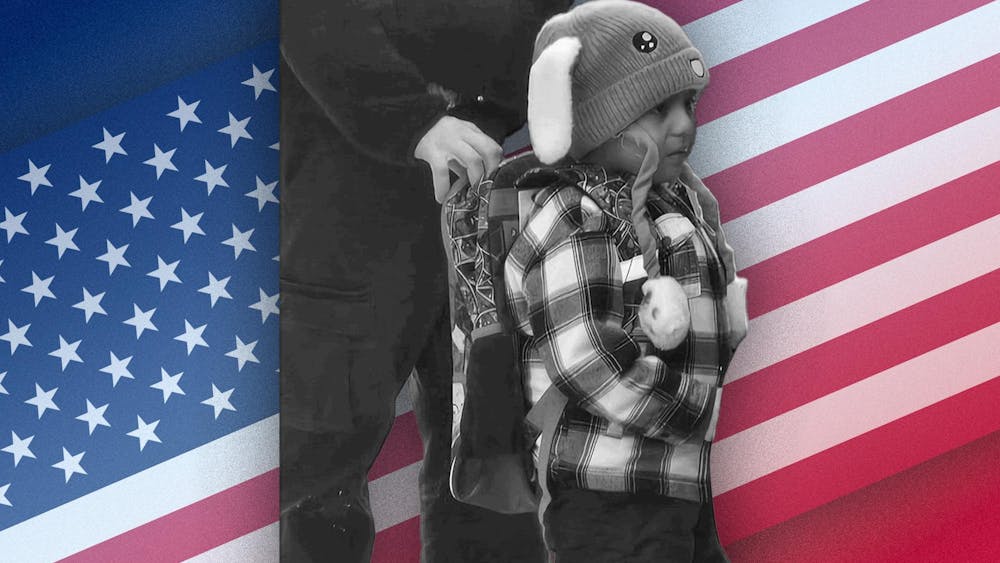My 2020 column “Food for Faith: What it’s Like Being Muslim at Notre Dame” prompted more kind emails, warm and fuzzy direct messages, conversion attempts and pranks than any other article I’ve written. I’m serious, my inbox was pinging for weeks. I’ve been thinking about why that article resonated so much with people, particularly with Catholics. In it, I gave an account of interfaith exchange being fulfilling in a real spiritual sense, in addition to a social, personal and academic one. I gave an account of interfaith closeness beyond tolerance.
In America, our sense of interfaith dialogue is sometimes, in the words of Jane Austen’s Darcy, “devoid of every proper feeling.” In describing how we might live with others, we reach for professional-sounding words like, “tolerance”, “dialogue” and “exchange.” But “tolerance” denotes only a willingness to allow proximity and existence — nothing more and nothing less. “Dialogue” and “exchange” imply a period of thought-sharing between two distinct parties who — when the exchange is over — share a clear wish to remain distinct.
Approaching interfaith conversation from these modes is antithetical to any satisfying conception of unity. There is something sacred in being subject to one another in the pursuit of religious or spiritual understanding. Yet we hold classes and panels and seminars for interfaith dialogue in beige rooms like we hold classes and panels and seminars about healthcare policy or nuclear proliferation. In these beige rooms, we advocate “looking past what divides us” and looking toward what is the same. At first blush, “looking past what divides us” sounds great. But aside from permitting a squeamishness about things about other people that make us uncomfortable, this approach situates differing beliefs and practices — rather than ourselves — as the “dividers.”
This view passes the buck. It says: when beliefs are incompatible, humans have little agency to approach or affect the division. I don’t think beliefs divide us. I think we divide ourselves with presuppositions that we, as members of some particular group, are uniquely endowed above all others with privileged access to and knowledge of the Divine. Too often, groups stake out a unique claim to “faith” — something alive, something of the soul, something one and true, rational and cerebral, chosen of one’s own upright volition — relegating what others have to be mere “religions” — something purely ritualistic, of the body, legalistic, primal, inherited through family like genes and a last name.
In its most innocuous forms, the above worldview disrupts unity and fellow-feeling; in its most dangerous forms throughout history, it has served as the basis for genocidal violence and dehumanization. If I am not attempting with all my might to know my neighbor in his complete state, just the way he is, with no intention to change him, I cannot love him. When we have interfaith dialogue, we mustn’t look past — we must be brave enough to look directly at one another in all our fullness and differentness. One problem, of course, is that academic and professional settings do not often lend themselves to prolonged engagement with religious differences. After the interfaith dialogue conference, after the college sophomore’s single class on someone else’s faith, participants leave the space of dialogue to go home to their families, friends and spouses who pray, eat, believe and live as they do. Aristotle speaks of living together, of sharing physical property as well as time and conversation, as preconditions for true friendship. If we can’t pray together, marry with one another, “break bread” with one another, how can we build any sort of foundation for community that doesn’t stem from some organizational wish to extinguish awkward feelings?
And wait — how can we do that in settings with a plurality of religious identities, each trying hard to maintain its integrity, core values, history and identity? Surely, I don’t advocate for the total dissolution of religious identities in service of unity. I don’t have all the answers. But I know from the response to my earlier column that what we crave is something beyond tolerance. We want to know that other human beings are spiritual in mostly the same ways that we are. We want to know that, being human, they engage with the Divine in similar ways that we do.
We crave a humility that says: “I think you’re here on this Earth, and different from me, so I can learn from you.” This differs from: “I think you’re here on this Earth and different from me, so I can help you by converting you to a better spiritual framework (mine).” Apart from praying shoulder to shoulder with him, study your neighbor’s lifestyle on its own terms, in the way someone studying in another country learns that language on its own terms. Here at Notre Dame, I was taught Christianity by Christian professors who presupposed the truth of the religion they were teaching. Through them, I learned a little about how to speak about God in the way Christians speak about God. I learned about metanarratives in which Christians situate themselves, the histories from which they trace their intellectual and spiritual heritage. I sat in Christian architecture, under Christian domes and in front of Christian altars. I measured time on a Christian calendar of holidays.
Without action, the ideas expressed in this essay are just as platitudinous as the beige room calls for tolerance and unity and looking past what divides us. If it is valuable to you to love your neighbor: go learn their religion.
Beyond tolerance
The views expressed in this column are those of the author and not necessarily those of The Observer.









